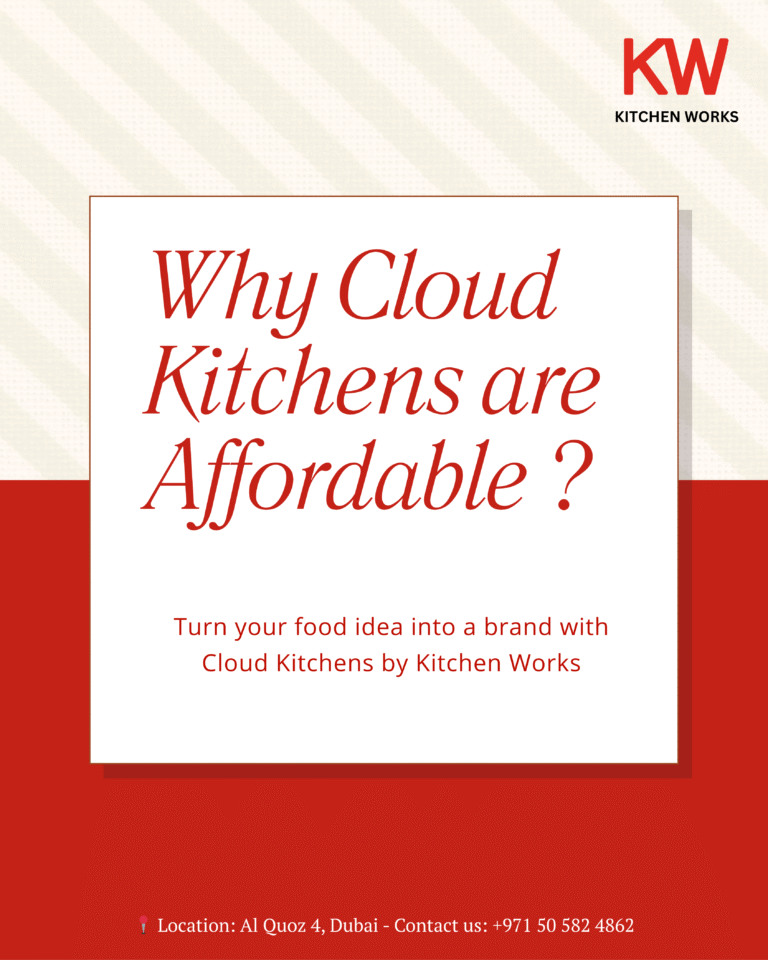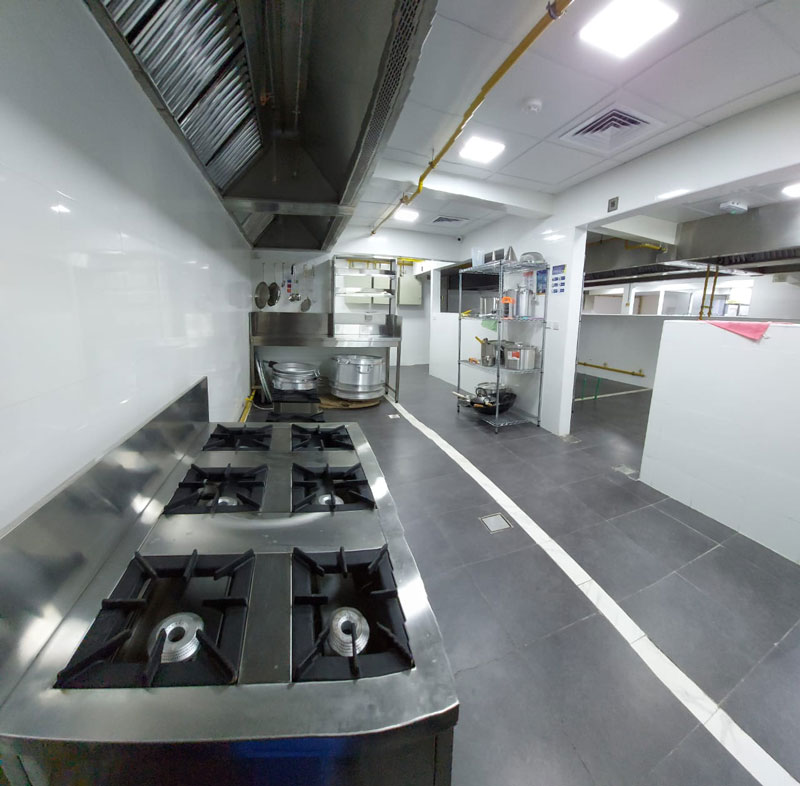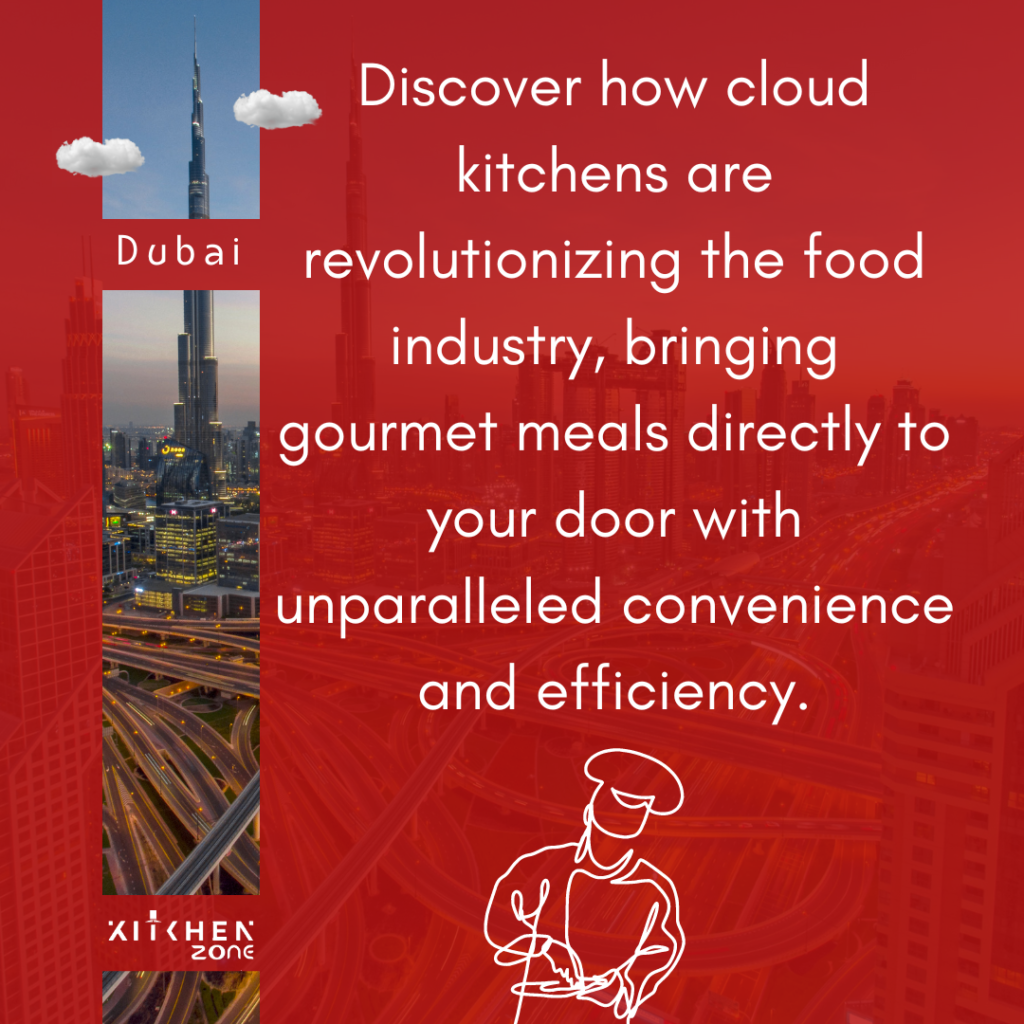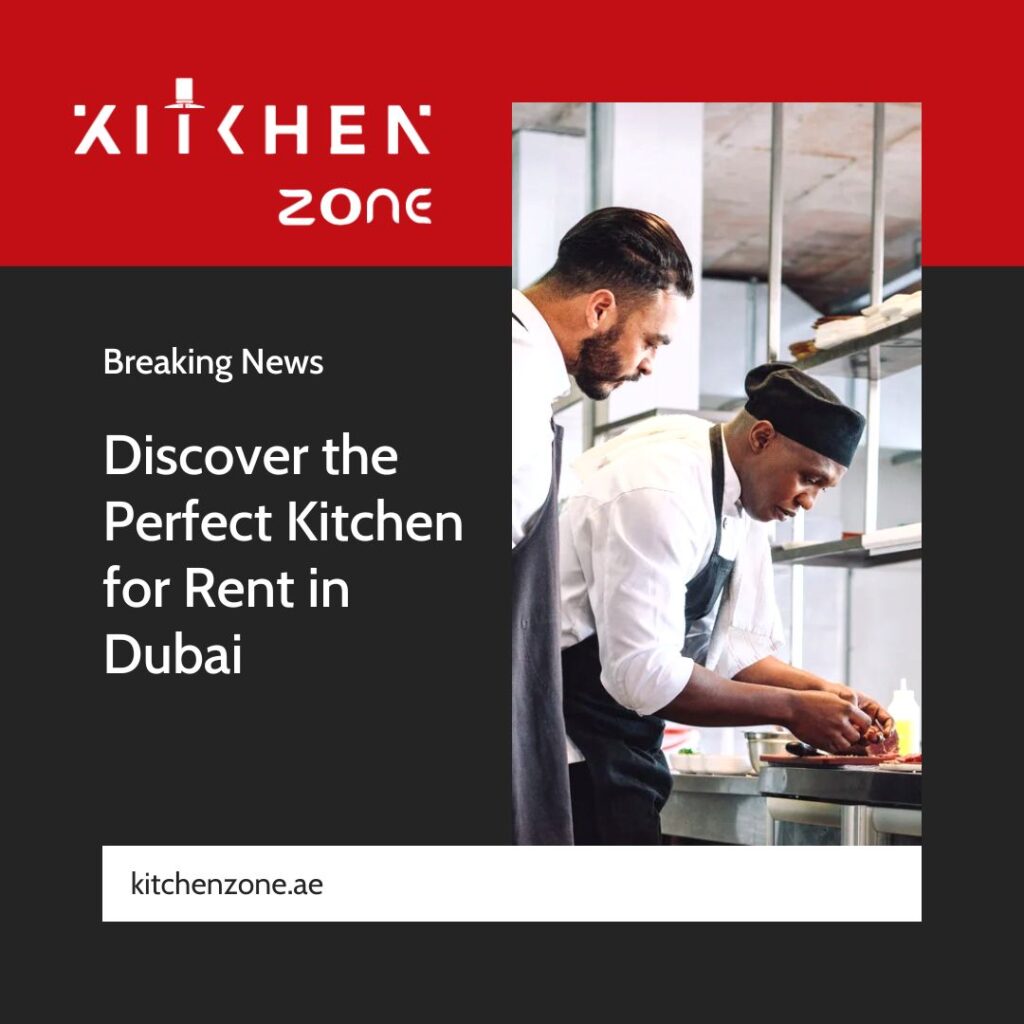Table of Contents
Unlocking Culinary Success: The Rise of Cloud Kitchen UAE
The culinary landscape of the UAE is undergoing a revolutionary transformation, and at the heart of this change are cloud kitchen uae. These innovative food businesses are reshaping how restaurants operate, allowing chefs to focus on their culinary creations without the hefty overhead of a traditional brick-and-mortar establishment. As the demand for diverse dining options surges, cloud kitchens offer a streamlined solution that caters to the ever-evolving tastes of food lovers. From gourmet burgers to exotic international dishes, these kitchens are unleashing creativity and efficiency. In a vibrant market where convenience is king, cloud kitchens are not just a trend; they’re paving the way for the future of food in the UAE. Dive into this exploration of culinary success as we uncover the factors fueling the rise of cloud kitchens and how they’re set to redefine the dining experience in one of the world’s most dynamic gastronomic hubs.
The Concept of Cloud Kitchens Explained
Cloud kitchens, also known as ghost kitchens or virtual kitchens, are a novel concept in the foodservice industry. Unlike traditional restaurants, cloud kitchens operate exclusively through delivery services, eliminating the need for physical dining spaces. These kitchens focus solely on food preparation and fulfilling online orders, leveraging digital platforms to reach customers. This model allows for a more streamlined, cost-effective approach to foodservice, as it eliminates many overhead costs associated with running a traditional restaurant, such as rent for prime locations, interior decor, and front-of-house staff.
The essence of a cloud kitchen uae lies in its operational efficiency. By centralizing the cooking process in one location and utilizing advanced technology for order management, cloud kitchens can serve multiple food brands under one roof. This flexibility enables them to cater to various culinary preferences without the constraints of a single restaurant’s menu. For instance, a single cloud kitchen might simultaneously prepare Italian, Chinese, and vegan dishes, using separate sections and specialized chefs for each cuisine. This versatility makes cloud kitchens highly adaptable to changing market demands and consumer tastes.
Furthermore, cloud kitchens capitalize on the growing trend of online food delivery. With the rise of food delivery apps and the increasing preference for home dining, these kitchens are well-positioned to meet the needs of modern consumers. They rely heavily on data analytics to optimize their operations, from tracking popular dishes to managing inventory efficiently. This data-driven approach not only enhances their service quality but also ensures minimal food waste, contributing to a more sustainable business model. In essence, cloud kitchens represent a significant shift in the foodservice industry, prioritizing convenience, efficiency, and adaptability.
The Growth of Cloud Kitchens in the UAE
The UAE has quickly embraced the cloud kitchen model, reflecting the region’s rapid technological adoption and dynamic culinary scene. The country’s vibrant food culture, combined with a high demand for diverse dining options, has created an ideal environment for cloud kitchens to flourish. Major cities like Dubai and Abu Dhabi are at the forefront of this trend, with numerous cloud kitchens emerging to cater to the eclectic tastes of residents and tourists alike.
Several factors have contributed to the exponential growth of cloud kitchen UAE. The nation’s high internet penetration and widespread use of smartphones have facilitated the popularity of food delivery apps. Platforms such as Zomato, Deliveroo, and Uber Eats have become integral to the dining habits of many UAE residents, offering a convenient alternative to traditional dining. This digital shift has made it easier for cloud kitchens to reach a broad audience and scale their operations quickly. Additionally, the UAE’s strategic location as a global hub and its diverse population create a fertile ground for various culinary concepts to thrive.
Moreover, the COVID-19 pandemic has further accelerated the adoption of cloud kitchens uae. With restrictions on dine-in services and a heightened focus on hygiene and safety, many restaurateurs have pivoted to the cloud kitchen model to sustain their businesses. This shift has proven beneficial, as it allows for continued operation with reduced physical interaction. The flexibility and cost-effectiveness of cloud kitchens have made them an attractive option for both established brands and new entrants looking to tap into the lucrative food delivery market. As a result, the cloud kitchen industry in the UAE is poised for continued growth and innovation.
Key Benefits of Cloud Kitchens for Entrepreneurs
Cloud kitchens offer numerous advantages for entrepreneurs looking to enter the foodservice industry. One of the most significant benefits is the reduced startup cost. Traditional restaurants require substantial investments in real estate, interior design, and front-of-house operations. In contrast, cloud kitchens can operate from less expensive locations, as they do not need to attract foot traffic. This lower capital requirement makes it easier for aspiring restaurateurs to launch their businesses and experiment with different culinary concepts without the financial burden of a physical restaurant.
Another key benefit is operational efficiency. Cloud kitchens are designed to maximize productivity and minimize waste. By focusing solely on food preparation and delivery, these kitchens streamline their processes and reduce overhead costs. Advanced technologies, such as automated order management systems and data analytics, enable cloud kitchens to optimize their operations and maintain high service standards. This efficiency not only enhances profitability but also allows cloud kitchens to scale rapidly and adapt to changing market conditions.
Furthermore, cloud kitchens provide greater flexibility and adaptability. Entrepreneurs can test new menu items, adjust pricing, and even launch new food brands with minimal risk. The ability to operate multiple brands from a single kitchen allows for diversification and experimentation, catering to various customer preferences. Additionally, cloud kitchens can easily expand their reach by partnering with multiple delivery platforms, ensuring a broad customer base. This adaptability is crucial in the fast-paced foodservice industry, where consumer tastes and trends are constantly evolving.
How Cloud Kitchens Are Changing the Food Delivery Landscape
Cloud kitchens are revolutionizing the food delivery landscape by offering a more efficient and scalable model for foodservice. With their focus on delivery-only operations, these kitchens are redefining how food is prepared and delivered to consumers. By centralizing food production and leveraging technology, cloud kitchens can handle a high volume of orders with precision and speed, ensuring that customers receive their meals promptly and in optimal condition.
One of the most significant impacts of cloud kitchens on the food delivery landscape is the enhanced variety and quality of food options available to consumers. Since cloud kitchens can operate multiple brands from a single location, they can offer a diverse range of cuisines and dishes, catering to various tastes and dietary preferences. This variety not only attracts a broader customer base but also encourages repeat orders, as consumers have more options to choose from. Additionally, the focus on delivery allows cloud kitchens to prioritize packaging and presentation, ensuring that food arrives in excellent condition.
Moreover, cloud kitchens are driving innovation in the food delivery sector. The use of data analytics and technology enables these kitchens to optimize their operations and enhance customer experiences. For example, real-time tracking and predictive analytics can help manage delivery times and ensure that food arrives hot and fresh. Furthermore, cloud kitchens can gather valuable insights into customer preferences and behavior, allowing them to tailor their offerings and marketing strategies accordingly. This data-driven approach not only improves service quality but also fosters customer loyalty and satisfaction.
Challenges Faced by Cloud Kitchens in the UAE
Despite their numerous advantages, cloud kitchens in the UAE face several challenges that can impact their success. One of the primary challenges is intense competition. The low barrier to entry for cloud kitchens has led to a rapid increase in the number of players in the market. This saturation can make it difficult for individual cloud kitchens to stand out and attract customers. To overcome this challenge, cloud kitchens must focus on creating unique and high-quality offerings that differentiate them from competitors and resonate with their target audience.
Another significant challenge is maintaining consistent quality and hygiene standards. Since cloud kitchens operate solely through delivery, they must ensure that their food meets high standards of taste, presentation, and safety. Any lapses in quality can lead to negative reviews and loss of customer trust. To address this, cloud kitchens must implement rigorous quality control measures and invest in training their staff to maintain consistent standards. Additionally, they must prioritize hygiene and safety, especially in the context of the COVID-19 pandemic, to reassure customers and build a positive reputation.
Logistics and delivery management also pose challenges for cloud kitchens. Efficient delivery is crucial to the success of these kitchens, as delays or errors can lead to dissatisfied customers. Managing a high volume of orders and coordinating with multiple delivery platforms can be complex and require robust systems and processes. Cloud kitchens must invest in technology and partnerships to streamline their delivery operations and ensure timely and accurate order fulfillment. Additionally, they must navigate regulatory requirements and compliance issues related to food delivery and safety, which can vary across different regions in the UAE.
Technology’s Role in the Success of Cloud Kitchens
Technology plays a pivotal role in the success of cloud kitchens, enabling them to operate efficiently and meet the demands of the modern food delivery market. One of the key technological advancements driving cloud kitchens is the use of data analytics. By analyzing data on customer preferences, order patterns, and market trends, cloud kitchens can make informed decisions about their menu offerings, pricing, and marketing strategies. This data-driven approach allows them to optimize their operations and enhance customer satisfaction.
Another crucial technological innovation is the integration of automated order management systems. These systems streamline the process of receiving, preparing, and delivering orders, reducing the risk of errors and delays. Automated systems can also manage inventory and supply chain logistics, ensuring that cloud kitchens have the necessary ingredients and resources to meet demand. This efficiency not only improves operational performance but also enables cloud kitchens to scale rapidly and handle high volumes of orders with ease.
Moreover, technology enhances the customer experience by providing real-time tracking and communication. Customers can track their orders from preparation to delivery, giving them visibility and control over the process. Additionally, cloud kitchens can use technology to gather feedback and engage with customers, fostering loyalty and building a positive brand image. Innovations such as AI-powered chatbots and personalized recommendations further enhance the customer experience, making it more convenient and enjoyable. Overall, technology is a critical enabler of the cloud kitchen model, driving efficiency, scalability, and customer satisfaction.
Case Studies: Successful Cloud Kitchens in the UAE
Several cloud kitchens in the UAE have achieved remarkable success, showcasing the potential and versatility of this business model. One notable example is Kitchen Works, a leading cloud kitchen operator that has rapidly expanded across the region. Kitchen Works partners with various food brands to manage their delivery operations, leveraging its extensive network of kitchens and advanced technology. By focusing on operational efficiency and customer satisfaction, Kitchen Works has become a dominant player in the UAE’s cloud kitchen market, setting a benchmark for others to follow.
Another successful cloud kitchen is Rebel Foods, which has introduced multiple virtual brands catering to diverse culinary tastes. Rebel Foods operates a network of cloud kitchens that prepare a wide range of dishes, from Indian and Middle Eastern cuisine to fast food and healthy options. By offering a variety of high-quality meals and optimizing their delivery processes, Rebel Foods has built a loyal customer base and achieved significant growth. Their innovative approach to menu development and marketing has also helped them stand out in a competitive market.
Sweetheart Kitchen is another remarkable success story in the UAE’s cloud kitchen landscape. Focusing on the delivery of comfort food and international favorites, Sweetheart Kitchen has quickly gained popularity for its delicious and consistent offerings. The brand emphasizes quality and convenience, using technology to streamline its operations and enhance the customer experience. By prioritizing customer feedback and continuously improving their menu, Sweetheart Kitchen has established a strong presence in the UAE’s food delivery market, demonstrating the potential of cloud kitchens to thrive in a dynamic culinary environment.
Future Trends for Cloud Kitchens in the UAE
The future of cloud kitchens in the UAE is poised for continued growth and innovation, driven by evolving consumer preferences and technological advancements. One of the key trends shaping the future of cloud kitchens is the rise of hyper-localized delivery. As consumers increasingly seek convenience and speed, cloud kitchens are likely to adopt strategies that focus on serving specific neighborhoods or areas. By establishing smaller, strategically located kitchens, these businesses can reduce delivery times and enhance customer satisfaction, catering to the demand for quick and efficient service.
Another emerging trend is the integration of sustainable practices in cloud kitchen operations. As environmental concerns gain prominence, consumers are becoming more conscious of the sustainability of their food choices. Cloud kitchens can capitalize on this trend by adopting eco-friendly practices, such as using biodegradable packaging, sourcing locally produced ingredients, and minimizing food waste. By prioritizing sustainability, cloud kitchens can attract environmentally conscious customers and differentiate themselves in a competitive market.
Additionally, the adoption of advanced technologies such as artificial intelligence (AI) and the Internet of Things (IoT) is expected to play a significant role in the future of cloud kitchens. AI can enhance various aspects of cloud kitchen operations, from optimizing menu offerings and predicting demand to personalizing customer experiences and automating order management. IoT devices can streamline kitchen processes, monitor food quality, and ensure efficient inventory management. These technological advancements will enable cloud kitchens to operate more efficiently, deliver superior service, and stay ahead of industry trends.
Conclusion: The Future of Dining in the UAE
The rise of cloud kitchens in the UAE marks a significant shift in the culinary landscape, offering a new and innovative approach to foodservice. These delivery-only kitchens have transformed how restaurants operate, providing a cost-effective and efficient solution that caters to the dynamic tastes of modern consumers. By leveraging technology, optimizing operations, and embracing flexibility, cloud kitchens are set to redefine the dining experience in one of the world’s most vibrant gastronomic hubs.
As the demand for diverse and convenient dining options continues to grow, cloud kitchens are well-positioned to thrive in the UAE. Their ability to adapt to changing market conditions, experiment with new culinary concepts, and deliver high-quality meals makes them a formidable force in the foodservice industry. While challenges such as competition, quality control, and logistics remain, cloud kitchens that prioritize innovation and customer satisfaction will undoubtedly succeed.
Looking ahead, the future of dining in the UAE will be shaped by the continued evolution of cloud kitchens. With advancements in technology, a focus on sustainability, and a commitment to meeting consumer demands, cloud kitchens will play a pivotal role in the culinary success of the region. As they continue to unlock new possibilities and redefine the food delivery landscape, cloud kitchens are paving the way for a more exciting and dynamic dining future in the UAE.





